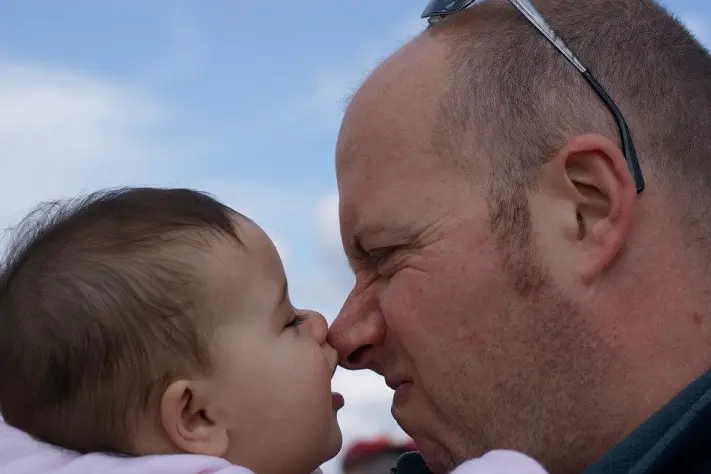22nd June 2020
To mark International Father’s Mental Health Day, a blog from one of our Fellows, Sharin Baldwin on her work with engaging with fathers.

Sharin Baldwin
In recent years, fathers’ mental health and wellbeing has been recognised as an important public health issue. Research suggests that men want to be asked questions about their mental health and wellbeing (Baldwin et al, 2019) and would welcome the opportunity to express their feelings and emotions about fatherhood (Salway et al, 2009) but despite this, difficulties associated with health professionals’ engagement with fathers continue to be reported.
Health professionals have often cited their limited experience of working with fathers, and their inability to assess fathers’ mental health and wellbeing to identify problems as a limitation (Massoudi, 2013; Hammarlund et al., 2015). For example, health visitors have reported being inadequately prepared to support fathers during their health visiting training (Oldfield and Carr, 2017), a lack of confidence to work with fathers and even fears for their own safety (Whitelock, 2019). These accounts from health professionals foster a misconstruction that fathers are very nearly a different species and to work with them effectively a special or unique set of skills are required! This however is clearly not the case, as I learnt from my own experiences of working with fathers in practice and through research. During the New Dad Study, I was able to dispel a number of assumptions and preconceptions I had about engaging with fathers. Through reflecting on my practice and by being reflexive about my research I have been able to successfully engage with new fathers. I feel it is important for health professionals to be aware of their own assumptions and preconceptions, and try and approach working with fathers with a clear and open mind. After all, men are not from Mars!

Professionals who have good communication skills should be able to engage effectively with fathers. Health visitors are ideally placed to assess fathers’ mental health as well as maternal and infant mental health, and therefore play an essential role in addressing this vitally important public health issue. Health visitors do need to know the evidence base for enabling good paternal mental health – they need to understand the context for effectively delivering father inclusive services but they do not necessarily need additional skills to work with fathers as they already have the advanced attributes needed to work with families as a whole. So, let’s not exclude fathers, who are a significant part of the family unit, when we provide advice, intervention and support to families.
My new paper published this month ahead of International Father’s Mental Health Day, explores some of the issues relating to engagement with fathers in practice and research. It includes reflections from the New Dad Study (NEST) and some of my personal learning.
More information about the New Dad Study (NEST) can be found on: www.newdadstudy.com
Sharin Baldwin, Clinical Academic Lead (Nursing), Learning & Organisational Development, Northwick Park Hospital
References:
Baldwin, S., Malone, M., Sandall, J., Bick, D. (2019) A qualitative exploratory study of UK first-time fathers’ experiences, mental health and wellbeing needs during their transition to fatherhood. BMJ Open 2019;9:e030792. doi:10.1136/bmjopen-2019-030792 https://bmjopen.bmj.com/content/9/9/e030792.info
Hammarlund, K., Andersson, E., Tenenbaum, H., Sundler, A.J. (2015) We are also interested in how fathers feel: a qualitative exploration of child health center nurses’ recognition of postnatal depression in fathers. BMC Pregnancy and Childbirth, 15:290. DOI 10.1186/s12884-015-0726-6
Massoudi, P. (2013) Depression and distress in Swedish fathers in the postnatal period–prevalence, correlates, identification, and support [dissertation]. Sweden: University of Gothenburg.
Oldfield, V., Carr, H. (2017) Postnatal depression: Student health visitors’ perceptions of their role in supporting fathers. Journal of Health Visiting, 5(3): 143 – 149.
Salway S, Chowbey P, and Clarke L. (2009) Parenting in modern Britain: understanding the experiences of Asians fathers. Joseph Rowntree Foundation & York Publishing: York.
Whitelock, A. (2016) Why do health visitors screen mothers and not fathers for depression in the postnatal period? Journal of Health Visiting, 4(6): 312-32


